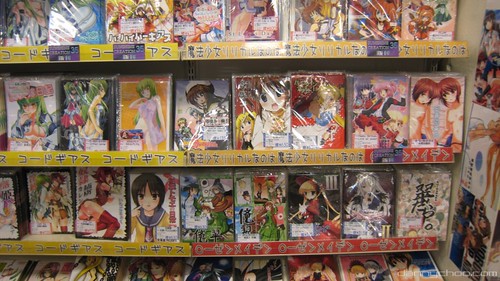Whilst mulling over what to write for my first blog post, I got to thinking about one of my favourite guilty pleasures – fanfiction. The other day I was lucky enough to have a chat with Michel Hockx (@mhockx), lecturer and director of the China Institute at SOAS, about his research into Chinese cyberliterature; I was doubly lucky to have had a sneak peak at the new book he’s writing on the subject. The topic is fascinating because of the casualness and acceptance that Far Eastern markets appear to have towards these types of amateur, remediation-based activities.
In the West, there is still something of a ‘cult of the professional’: a finely delineated line between the expert and the amateur. Professional writers are put on pedestals; fanfiction writers are perceived as emotionally arrested geeks who probably still live in their parents’ basements. That isn’t to say that there isn’t a LOT of bad fanfiction out there: trawl through FanFiction.net (the largest fanfiction site in the world), and the odds are that 90% of what you read will be, ahem, unrefined drivel. But there are gems in there. You just have to know where to look (and have infinite patience).
In the Far East, fandom is not so much celebrated as merely a way of life. In particular I’m thinking of Japan when I say this. Take Mandarake, a chain of Japanese stores that sell anime and manga related products. Each store has a huge section dedicated to doujinshi, comics written and drawn by fans (or sometimes a ‘circle’ of more than one fan) about their favourite characters. And many if not most of these amateur publications are of an excellent, dare I say professional, quality. What then is the real distinction between the expert and the amateur in such cases?

Doujinshi, Japanese fan-made comics. Photo by Danny Choo.
And then take China. Michel Hockx pointed out a fascinating site to me, called Qidian. Qidian features stories written by amateurs in a variety of genres, including fanfiction. Sites like Qidian are far more sophisticated than anything you might find in the West. Compare with FanFiction.net – Qidian offers downloadable content for mobile devices via apps, professional style ‘book covers’, and even pay-per-word reading models for some stories. Some stories even make the jump into being published in special ‘web literature’ sections of Chinese bookstores. (Admittedly, Western sites like Wattpad are increasingly taking on the Qidian-style model; but I wouldn’t hold my breath waiting for the stories featured on amateur sites to find their way onto the shelves of actual bookshops).

‘Network literature’ or web literature on sale in a Chinese bookshop. Picture by the Beijing Review.
Several years back, a friend of my sister’s, reafre, who’s from Thailand, sent my sister a present. It was a lovely book, with a textured cover, beautiful font, and gorgeous illustrations. It was in Thai, and I couldn’t understand a word of it. But I could tell what the book was about from the illustrations reafre had drawn for the book. They were depictions of Viggo Mortensen and Orlando Bloom as Aragorn and Legolas from the Peter Jackson Lord of the Rings movie. The book was slash fanfiction – in other words fanfiction featuring same sex relationships. I was stunned (and just a little bit jealous) that reafre was able to create such a beautifully presented and polished product – that it was even possible to do so. It was the first time I’d encountered fanfiction as a product to be proud of, rather than something to be hidden away in the maze of mediocrity and relative anonymity that is FanFiction.net.
Don’t get me wrong. Since Fifty Shades of Grey, the West is opening up to the possibilities of fanfiction as a legitimate literary genre. Take Kindle Worlds for instance (whose motto is ‘New stories inspired by books, shows, movies, comics, music, and games people love.’). Here amateurs are given free rein to write about their fandoms and publish them as Kindle e-books, thus glossing their work with a sheen of professional respectability (book covers, royalties, etc.) The only downside is, your fanfiction can only be about the ‘worlds’ (or fandoms) that have been licensed by Amazon. So only a handful of fans get the privilege of being ‘published’ in a more traditional sense.

Kindle Worlds. Fanfic for profit.
According to von Veh (2013) in her article, Kindle Worlds: Bringing Fanfiction Into Line But Not Online?, this is a sterile venture that fails to recreate the interactive and participatory cultures that typify other amateur writing platforms such as FanFiction.net and LiveJournal. On these sites, there is a strong sense of community – the ability to comment, rate, critique and even affect the outcome of storylines; and there is the opportunity to make friends with other like-minded fans, be they writers or readers. These are all traits that are preserved in sites like Qidian (which, like Kindle Worlds, also make money out of writers’ work), but appear to be absent from the Kindle Worlds platform itself.
Is this a bad thing? Does the participation factor in fan communities necessarily make for a better product than those offered by a top-down publishing industry? Does the chance to pool resources, trade hints and tips, provide critiques and work on collaborative projects with other fans, hobbyists and amateurs make any difference when compared to the solo output of a professional or expert, or even the faceless creative team behind the latest corporate endeavour?
I’m not sure. But I certainly aim to find out.